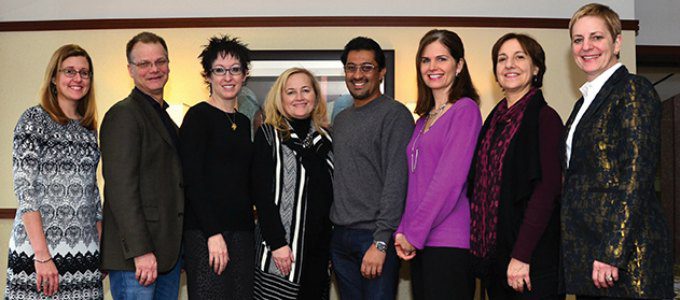When assessing the state of learning and development at professional services firm Accenture, look no further than its learning delivery metrics for fiscal year 2012.
For starters, 100 percent of Accenture employees had access to training during the year. Employees completed more than 3.7 million courses, and 1 million course evaluations were submitted — about 2,740 per day.
What’s more, employees underwent 208,900 instructor-led training days at Accenture’s regional training centers, which span from its flagship facility just outside of Chicago to Europe, the Middle East, Africa, Latin America and Asia.
If those numbers aren’t eye-popping enough, the company — which employs about 281,000 people and has operations in 200 cities and 56 countries — expects fiscal year 2013 numbers to match or exceed those figures.
To Dan Bielenberg, Accenture’s director of capability development strategy, keeping employees engaged in learning at this level starts with the company’s culture. “It’s fundamentally a fast-paced business that forces people to stay sharp and keep their skills relevant,” he said. “People come in expecting to learn.”
How it structures its learning function — and ties it so closely to the business — also plays a part. Accenture’s learning function is composed of capability development leads — employees whose main function is to remain in sync with each business unit. Bielenberg said the function supports roughly 75 business entities, making sure each employee population is equipped with the skills needed to perform at a high level.
Such a high-focused learning culture is likely a big reason why Accenture has cracked the top 10 LearningElite organizations every year since Chief Learning Officer began the benchmarking and recognition program in 2011.
So how does the function continue to outdo itself?
The learning and development industry continues to evolve rapidly, with innovations in technology, delivery and measurement disrupting traditional norms and strategies. This has forced even top-notch companies like Accenture to explore newfangled learning tactics to stay relevant and ahead of the curve.
Bielenberg said much of the year-over-year improvement in the company’s learning strategy is in metrics and measurement. “Before I think some of the analytics [we were doing] was very exploratory,” Bielenberg said. “Now, over the last year we’ve managed to put it into practice over our big accounts.”
Innovations also appear in how the company treats classroom learning. Bielenberg said the company is involved in a projectit calls the Accenture Classroom of the Future, a worldwide network of local classrooms that are not only equipped with advances in technology, room design, furnishings and other equipment, but also they can connect with one another.
Essentially, a classroom in Chicago is fully connected to a similar classroom in Europe, making previously dispersed subject matter experts central to one location now accessible to learners across the globe. “When you’ve got one or two experts in one location and in five or six other locations that really need those skills, now we can connect them in a more regular, consistent, quality way,” Bielenberg said.
Accenture is also progressing in its virtual learning efforts. Instead of relying wholly on webinars to capture training virtually, Bielenberg said the company has ramped up efforts to build skills through case study activities and simulations through virtual classrooms.
Building upon the function’s digital strategy is a big part of its plans moving forward. Social learning, in particular, is a major area Bielenberg said the function has made progress on and will continue to work on in the year ahead.
“What we’ve been able to do with social learning is to go beyond it just being Facebook and people posting things and it being random Q&As,” he said. “We’ve actually put some structured activities around topics that have been very successful; we can engage 300 to 400 people in a dialogue over the course of a month.”
Bielenberg said these advances play into Accenture’s tagline when it comes to learning — a philosophy that, no matter what innovations are to come in the industry, is likely to stay relevant: “Provide people time away to learn, and learning all the time.”















